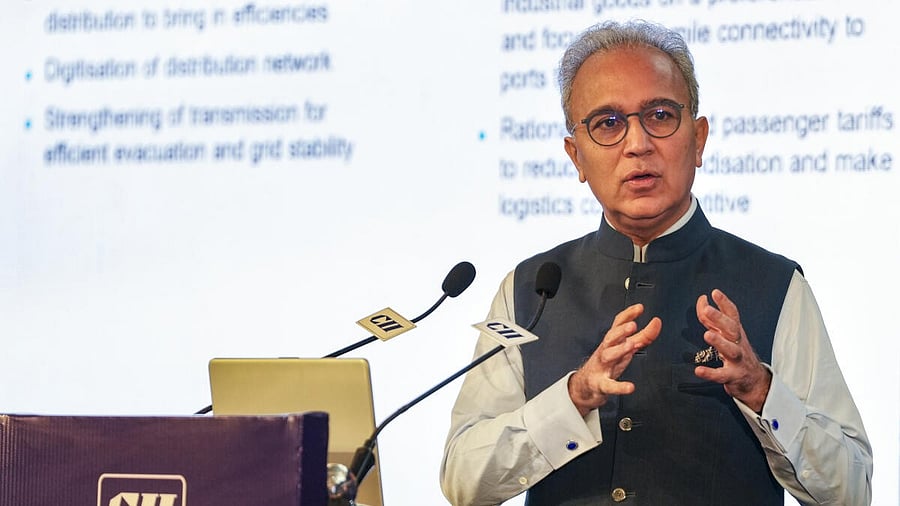
President of Confederation of Indian Industry (CII) Rajiv Memani
Credit: PTI Photo
New Delhi: The proposed bilateral trade agreement (BTA) between India and the United States would be signed in phases and the two countries are likely to keep politically sensitive issues for later stages of negotiations, Confederation of Indian Industry (CII) President Rajiv Memani said on Thursday.
“We will not have 100% winners, FTA will be done in phases, so tricky areas with greater political ramifications will be dealt with later,” Memani said at a media conference.
He said there had been extensive engagement between the government and India Inc on the issue and the industry was hoping for a satisfactory deal. “I am confident that India Inc's challenges will be adequately addressed,” he said.
The CII President’s comments come amid ongoing negotiations on the India-US bilateral trade agreement. An Indian delegation led by special secretary in the Department of Commerce Rajesh Agrawal is in Washington to iron out differences.
According to sources, the two countries are likely to announce an interim trade pact before the July 8 deadline, when the so-called reciprocal tariffs of 26% on Indian goods in the US, as announced by President Donald Trump in April, will kick in.
Market access and tariffs on dairy and agricultural products are among the key stumbling blocks. The US has been pitching for tariff concessions and greater market access in these areas which are linked to the livelihood of around 70 crore Indian population.
Commenting on the economy, Memani said India’s gross domestic product (GDP) would grow in the range of 6.4 to 6.7% in the current financial year.
“At a time when global economic and political volatility is at its highest in over two decades, India stands out as a bright spot in an increasingly fractured global economy,” he said.
The CII President expressed concern over the impact of the shortage of rare earth materials on India’s auto sector.
“In auto, I would say the concern is more serious than what’s come out till now. In fact, some of the most conservative companies have begun to give some guidance on lowering their production levels going forward,” Memani said.
Rare earth materials are crucially important for high-tech manufacturing like auto, defence and clean energy. China’s export restrictions on certain rare earth elements has impacted global supply chains and led to shortages in India and several other countries.
Memani emphasised on the need for taking measures to reduce dependency on China for supply of critical minerals. “This is a moment to re-examine all critical supply chain dependencies,” he said.
Cut-off box - India may allow GM animal-feed imports from US Bloomberg: India may allow imports of some processed genetically modified US farm products as it seeks to strike a trade deal with Washington a potential concession after New Delhi opposedinflows of GM corn and soybeans. Authorities may agree to inbound shipments of some products used in animal feeds such as soybean meal and distillers dried grains with solubles a byproduct of corn-based ethanol production according to people familiar with the matter who asked not be identified as the information isn’t public.